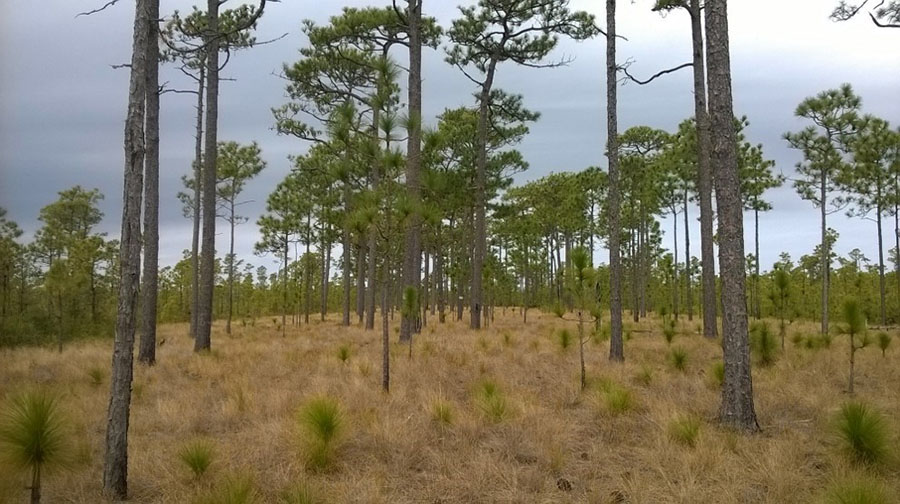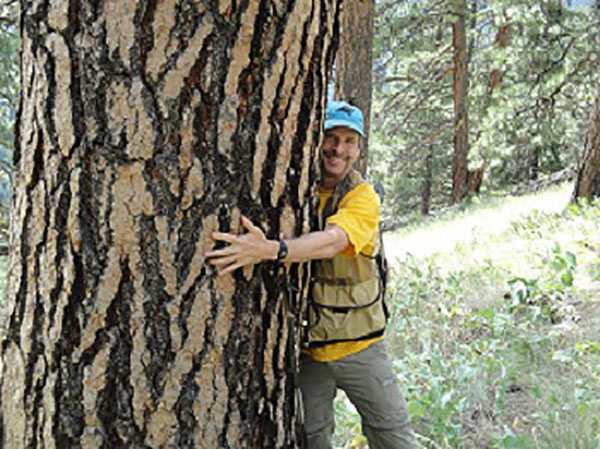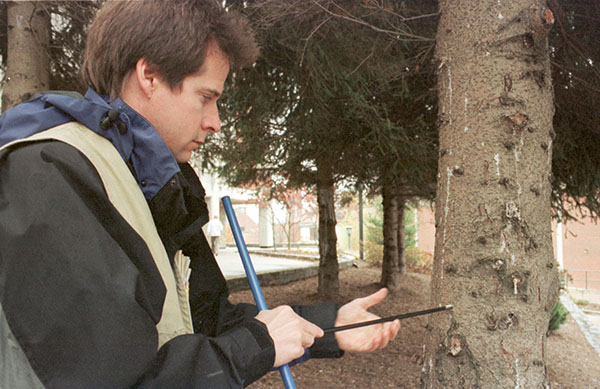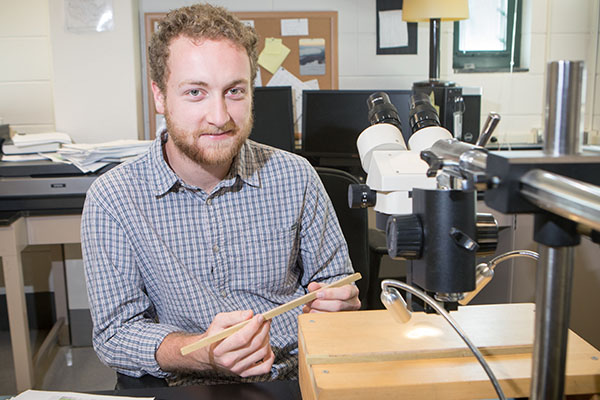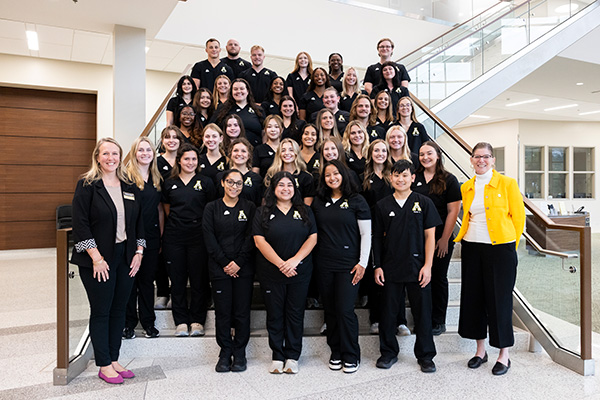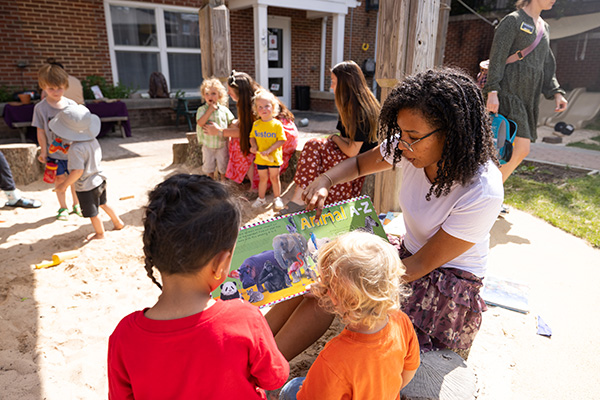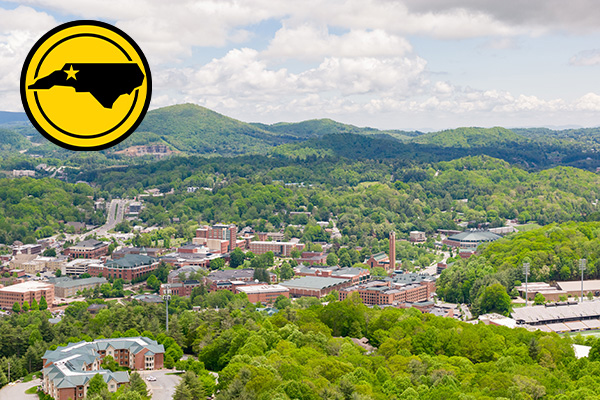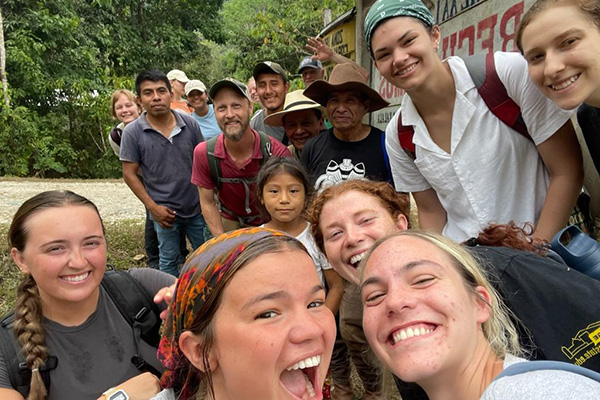BOONE, N.C. — Dr. Peter Soulé, professor in Appalachian State University’s Department of Geography and Planning, is the recipient of $32,601 in funding from the University of North Carolina at Greensboro to research the variability of rainfall in the Southeast Atlantic Coastal Region (SACR) of the United States by studying tree ring records of the area’s longleaf pine. This funding is part of a larger, $300,886 grant from the National Science Foundation (NSF).
Soulé’s partners for the project are Dr. Paul Knapp, professor in the Department of Geography at UNC Greensboro, and Dr. Justin Maxwell, assistant professor in the Department of Geography at Indiana University Bloomington. The University of North Carolina at Greensboro is the lead institution for the project.
Soulé said, “This study will provide perspectives regarding the hydroclimatic importance and variability of rainfall derived from landfalling tropical cyclones (TCs), including tropical depressions, tropical storms and hurricanes in the Southeast Atlantic Coastal Region (SACR) of the United States through development and application of multiple proxy tree ring records.
“Latewood growth of longleaf pine (Pinus palustris Mill.) in the SACR principally occurs from mid-June through mid-October, thus coinciding with tropical cyclone season, and has strong statistical power when used to reconstruct precipitation.”
According to Soulé, pilot study results, which were published in 2015 in the peer-reviewed, scientific journal Climatic Change, showed that 50 percent of the variance in TC-derived precipitation (TCP) was explained using tree growth. Further, he said, the climate reconstruction in the pilot study revealed a multidecadal period in the 1800s with minimal to no TCP that was unmatched in the instrumental record.
The objectives of the study, as defined by Soulé, are to extend the TCP record 200 years beyond the instrumental record using proxy tree ring data from live and remnant wood from eight study sites in the SACR of North and South Carolina; and examine the spatiotemporal variability of TCP and evaluate rates of change associated with this variability, including long-term trends, periodicities and regime changes. The study, he said, will also determine the potential suite of interactive and multivariate influences of multiple climate-forcing factors (e.g., El-Niño Southern Oscillation) on TCP.
“The results will have applications linking paleoclimates with current concerns regarding climate change and enhanced variance of precipitation delivery,” Soulé said.
Evan Montpellier ’17, a graduate student in Appalachian’s Master of Arts in Geography program, assisted Soulé in fieldwork for the project.
“Being able to gather information in different areas and bring it back to the Appalachian Mountains is really a unique opportunity,” said Montpellier, who earned his bachelor’s degree in geography at Appalachian in May 2017.
“It’s incredible to look at a tree ring core you’ve dated back 500 years. You’re reconstructing history. It’s fascinating to me to know that there were early explorers walking past these trees, and we have a snapshot of what conditions were like then.”
About the Department of Geography and Planning
The Department of Geography and Planning promotes the understanding of the spatial dimensions of human behavior within the physical and cultural systems of the earth, and the role of planning in achieving improvement in those systems. The department offers degrees in geography and in community and regional planning. Learn more at https://geo.appstate.edu.
About Appalachian State University
As a premier public institution, Appalachian State University prepares students to lead purposeful lives. App State is one of 17 campuses in the University of North Carolina System, with a national reputation for innovative teaching and opening access to a high-quality, cost-effective education. The university enrolls more than 21,000 students, has a low student-to-faculty ratio and offers more than 150 undergraduate and 80 graduate majors at its Boone and Hickory campuses and through App State Online. Learn more at https://www.appstate.edu.
What do you think?
Share your feedback on this story.
